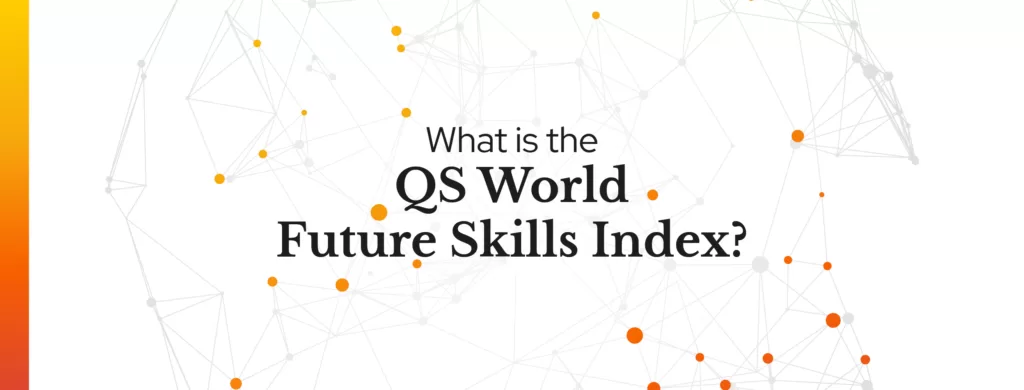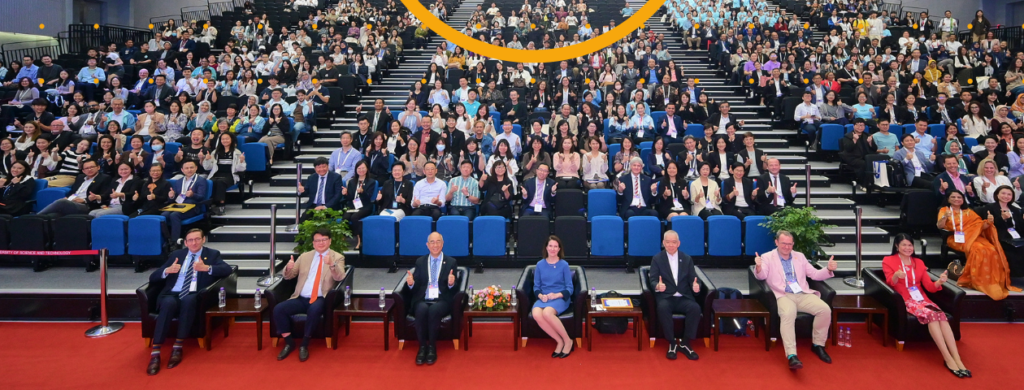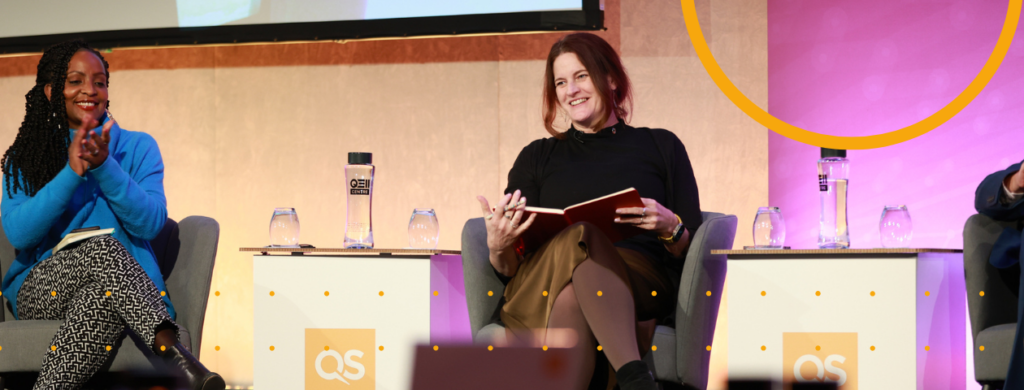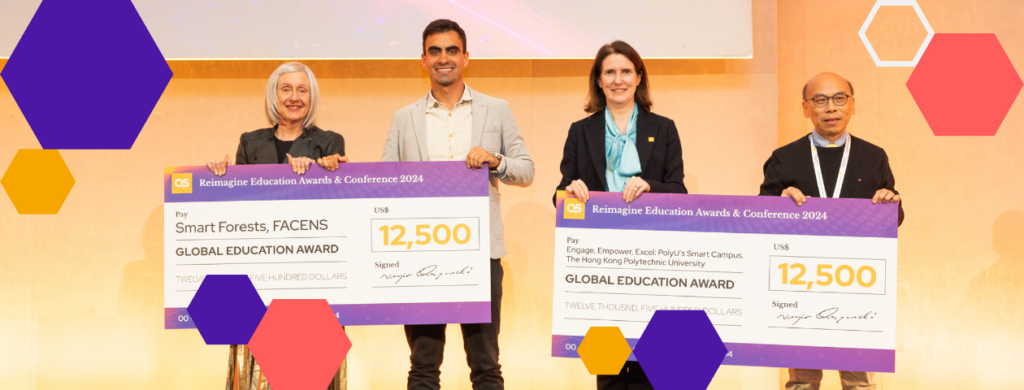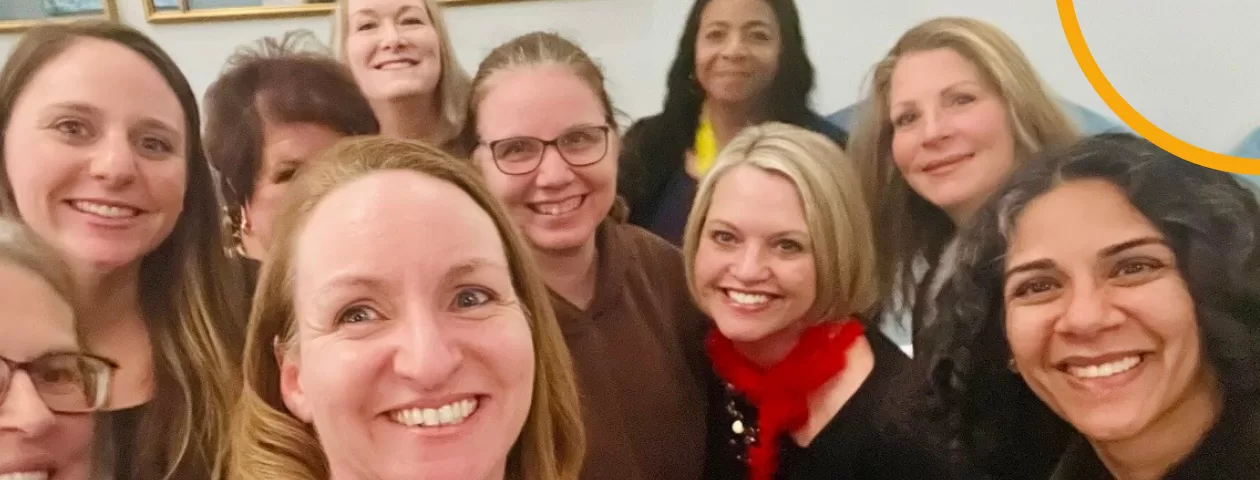
The AACSB Deans Conference brought together global leaders in business education to explore the pivotal role business schools play in preparing future leaders for an increasingly unpredictable world. As the Graduate Management Education Proposition Director at QS and a former business school Dean, I was honored and excited to attend this influential event in Las Vegas, US, to connect with my higher education peers and gain valuable insights into the key challenges, emerging trends, and strategic opportunities that business school deans will face in 2025 and beyond.
Here’s what to look out for in global business education in 2025:
It’s time to act on AI
There was no surprise to see that AI was a huge topic of conversation. Despite some concerns that discussions on AI in business education are becoming recycled, sessions focused on how vital it is for business schools to act in 2025.
There is no longer any doubt that AI is connected to every area of business education and Ethan Mollick, Professor of Entrepreneurship at The Wharton School, gave the opening keynote and described AI as “undetectable, ubiquitous, and transformative,” showing us just how engrained AI is in the learning experience.
There has been a growing demand for concrete case examples of AI’s application in higher education, as the sector sought clearer guidance on how to effectively integrate this technology in 2024. Now, the landscape is shifting—successful AI use cases are emerging globally, with many business schools taking the initiative to experiment and innovate, often without a defined roadmap. At QS, we have launched the QS AI Competency Framework, a free open-source framework to help understand current performance, identify gaps and make strategic decisions. This evolving approach highlights the sector’s commitment to adapting and leading in the age of AI.
Dr. Isabelle Bajeux-Besnainou, Dean at the Tepper School of Business at Carnegie Mellon University, introduced a brand-new AI-powered admissions tool that the school is in the process of launching. Connecting prospective students with answers to key questions and recommended actions, the platform aims not to replace the human function of student recruitment, but to enhance it by freeing up the time of the admissions team to engage in more in-depth conversations with students who are serious about pursuing their education with Tepper.
Skills remain top of the agenda, for good reason
With increasing pressure to prepare students for a rapidly evolving and technologically driven workforce, skills remain top of the agenda for business education in 2025. The QS World Future Skills Index finds that innovation in a country’s higher education system and ensuring the sector’s long-term sustainability is fundamental to a growing national economy. It’s an important time for governments and higher education institutions to recognise that a huge disruption to workforce norms is on the horizon.
Inside the broad topic of ‘skills’, focus is being given to teaching students how to think instead of what to think, so they are better equipped to be adaptable, curious and resilient in the future workforce. While conversations about AI are turning to action, when it comes to skills there are still debates to be had about what a skills gap means and how we categorize ‘durable’ and ‘comprehensive’ skills, for example.
One speaker shared that a recent graduate said that in the ‘real world’, data is often imperfect, and information can change throughout a project. In business schools, the data associated with a case study or assignment is usually provided without changes or corrections, making it hard to know what to do when things aren’t so clear cut in the workplace.
The question becomes how are we weaving these more deliberately into our curriculum alongside the more technical, emerging, or discipline-specific skills? And how can business schools find the gaps where controlled educational learning does not provide the same imperfect conditions as the workplace?
In addition to how students are educated, business schools must also ensure students are able to gain some of these durable skills outside of the classroom – through co-curricular activities and experiences – and how to best articulate these skills in networking conversations and interviews.
According to a recent Forbes article, unemployment numbers for recent MBA graduates at top US business schools have more than doubled since 2022. The Economist also states that ‘At the top 15 business schools, the share of students in 2024 who sought and accepted a job offer within three months of graduating […] fell by six percentage points, to 84%. Compared with the average over the past five years, that share declined by eight points.’ With the job market shifting for even the most elite business graduates, the need for skills to remain at the forefront of business education is vital.
Research impact is a growing priority
Throughout the conference, research impact surfaced time and time again in panel discussions, breakout sessions and in one-to-one conversations between deans. While traditional academic measures of research impact – including citations, publications, presentations and grants – aren’t going away any time soon, there are new types of impact coming to the fore.
There is a refreshing dialogue about how business school research impacts business, society, policy and classroom learning and how partnerships, policy changes, mainstream media coverage, student research and industry adoption of research are becoming more valuable in understanding the real-world impact beyond academic measures. This does raise some challenges in measurement, however, as these methods of impact are not as straightforward to record as counting citations. That said, there are promising changes happening in the integration of qualitative metrics that offer a more nuanced and comprehensive view of impact.
The UN’s SDGS are ‘a blueprint to achieve a better and more sustainable future for all.’ Research is increasingly highlighting the role that universities can take in addressing the global challenges we face, including poverty, inequality, climate change, environmental degradation, peace and justice. Finding new ways to implement and measure research impact is pivotal in advancing any of the SDGs – everything that has happened and will happen to alleviate climate change, reduce inequality, clean our waters or stop hunger will come as a result of research.
From the 2025 edition, the QS World University Rankings: Sustainability have included the CANIE Accord in the rankings methodology as a welcome step to measuring real world impact and acknowledging the critical role of universities in publicly committing to act on specific initiatives within their universities to educate, advocate and act to create change.
